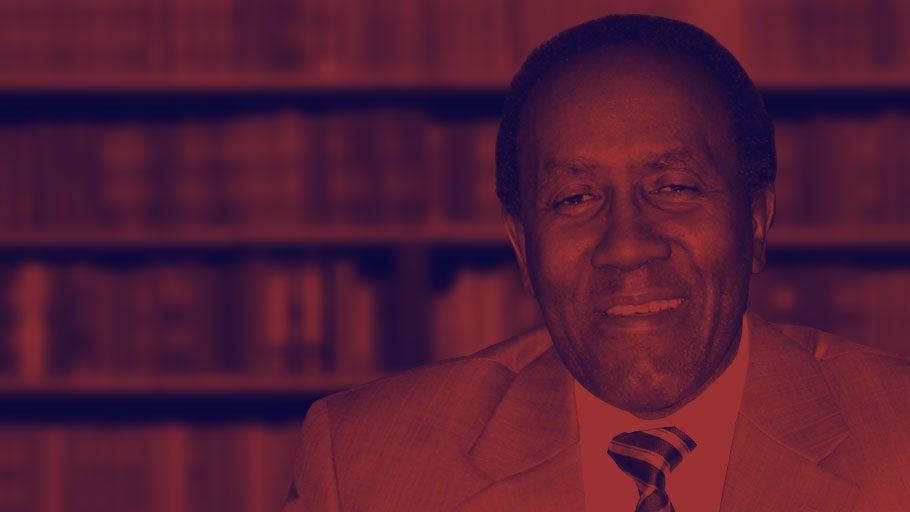The outbreak of Ebola in Guinea, Sierra Leone and Liberia has triggered a worldwide realization of how a deadly contagious disease can imperil the global community. Over 4,500 inhabitants of the three countries involved have succumbed to Ebola and the death toll will continue to increase exponentially until the world community can expand the health care capacity of the respective countries to contain the deadly disease.
The Chikungunya is not as deadly but has spread rapidly throughout the Caribbean. Dr. Fenton Ferguson, the Minister of Health, in his contribution to the sectoral debate on the Budget this fiscal year alerted the Jamaican people on the dangers of the Chikungunya and the need to eliminate the breeding ground for the Aedes Aegypti mosquito that was the transmitter of the disease. This forewarning was expressed long before the first case was registered in Jamaica.
The world community tends to pay short thrift on health matters until there is a crisis. In recent budget agreements, the Congress of the United States slashed the budget of the Center for Disease Control and the National Institute of Health. Both agencies play a pivotal role in not just health matters pertaining to the American people but are in the vanguard of monitoring the outbreak of contagious diseases and conducting the research for the vaccines of communicable diseases like the Ebola.
The debate in the United States vis-à-vis Ebola provides further insight into America’s unscientific political discourse on health care. The United States spends the most per capita on health care of the OECD countries and has the worst health outcomes.
Elected officials representing the Republican Party have created a hysteria over Ebola even though to date one individual who travelled from Liberia died of Ebola and two nurses who treated him at the hospital in Texas contracted the disease and are being treated for the disease. These are the same elected officials who vehemently fought the implementation of the Affordable Care Act which has reduced the number of Americans devoid of medical insurance.
Jamaica has banned travel to and from the countries battling with the Ebola pandemic. There are no cases discovered in Jamaica and Jamaica, unlike the United States, does not have the developed health care infrastructure to deal quickly and decisively with Ebola. The Chikungunya has been quite widespread but unlike the Ebola there have been very few deaths caused by the Chikungunya. It took an outbreak for the country to pay careful attention to eliminating some of the sites that were breeding the Aedes Aegypti mosquito responsible for spreading the disease.
Dr. Fenton Ferguson and the Ministry of Health have embarked on an educational campaign to inform Jamaicans about the nature of the Chikungunya which is similar to dengue fever, with the smitten running a fever with pain in the joints and headache that last for a few days. The disease is more dangerous to infants, the elderly or folks with chronic diseases.
Jamaica needs to pay far more careful attention to health care needs in the country and the presence of Chikungunya has nudged people to raise issues regarding the state of people’s health in Jamaica. The Minister of Health has been perturbed by the high percentage of Jamaicans who die from non-communicable diseases such as cardio-vascular ailments, cancer, diabetes, hypertension, etc.
In his address to Parliament this year, Dr. Fenton Ferguson blamed a corrosive, contemporary lifestyle that fosters these non-communicable diseases and has developed a plan to reverse the high level of non-contagious deaths in the country.
Jamaica, a country known for its prowess in track and field, is suffering from an exponential increase of obesity particularly among women in the 34-54 age bracket. Too many men engage in excessive drinking. And the diet has moved away from much of the indigenous natural foods to non-nutritious, sodium-riddled fast food diet.
The antidote is increased physical activity and the Minister of Health and the Minister of Education are working on a plan to make physical education compulsory in the school system. Public education needs to be done on a health-conscious diet. The detrimental lifestyle of excessive alcohol intake needs to be curbed as it is manifested in cirrhosis of the liver and colon cancer.
Dr. Ferguson led the fight to ban smoking in public buildings. We have known for decades that tobacco causes cancer of the lungs and was detrimental to human health. For decades, the tobacco companies engaged in a pseudo-science making the case that there was no causal connection but the age-old cover-up was revealed and in places like the United States, labels have been placed on packaged cigarettes warning smokers that cigarettes are hazardous to health. Jamaica has enhanced healthcare by banning smoking in public places.
Health care cannot be the concern of the Prime Minister, Minister of Health or the Ministry of Health. The community has a critical role to play in the enhancement of health. In the same vein, it is the community’s responsibility, in part, to clean up the breeding ground that allows the mosquitoes to spread the Chikungunya. This new civic pride should encompass a discourse on the need for a new healthy lifestyle to stave off non-communicable and communicable diseases. As a recent editorial in the Sunday Observer pointed out, the lessons from Chikungunya could well serve the nation in tackling related problems through community mobilization and national solidarity.















